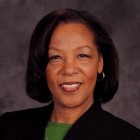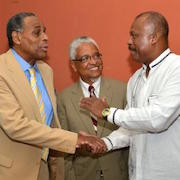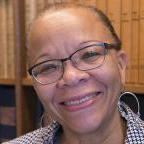 The University of Glasgow in Scotland has agreed to pay £20 million in reparations to the University of the West Indies. Glasgow University received millions of pounds in grants from British slave owners throughout the 19th century. The sum of £20 million was the amount paid to slave owners as reparations by the British government when it abolished slavery in 1834. Sir Hilary Beckles, UWI’s vice chancellor, said in a press release that Glasgow University recognized that it can not be excellent if it isn’t ethical. The agreement marks the first time a slavery-enriched European institution has apologized for its part in slavery and committed to reparation funds.
The University of Glasgow in Scotland has agreed to pay £20 million in reparations to the University of the West Indies. Glasgow University received millions of pounds in grants from British slave owners throughout the 19th century. The sum of £20 million was the amount paid to slave owners as reparations by the British government when it abolished slavery in 1834. Sir Hilary Beckles, UWI’s vice chancellor, said in a press release that Glasgow University recognized that it can not be excellent if it isn’t ethical. The agreement marks the first time a slavery-enriched European institution has apologized for its part in slavery and committed to reparation funds.
The money will be used to establish a jointly-owned and managed research institution, the Glasgow-Caribbean Centre for Development Research. The two institutions plan to find solutions to Caribbean development problems in areas such as medicine and public health, economics, and economic growth, cultural identity and cultural industries, and other 21st century orientations in Caribbean transformation. The center will conduct policy research in science, technology, society and economy, and education and advocacy that seek to repair what Beckles said was the “debilitating consequences of slavery and colonization that continue to hold back Caribbean development”
The new center will be formally established on both campuses in September.













After this, will West Indians stop badgering the British government for reparations?
Of course, not. The money will soon disappear without a trace, and the next generation of West Indians will undoubtedly blame the Glaswegians for withholding or mis-spending most of it. They will then demand another payment, adding interest to the “debt”, and the quarreling will start all over again.
Mr. Archer, had you been alive at the time, would you have had similar concerns about the the British plantation owners who received “reparations” for their “economic hardship” subsequent to the abolishment of slavery in 1834? Of course, not. Your skewed “logic” is but another example of attempts by the descendants of erstwhile enslavers to pass the buck and blame the progeny of former slaves for their current predicament. ou conveniently overlook the issue of whether those who held others in bondage for generations were even MORALLY entitled to “reparations” in the first place It strikes me that such act of generosity toward the slave owners was akin to paying bank robbers “reparations” for having impounded and taken their ill-gotten loot!
Well said, El.